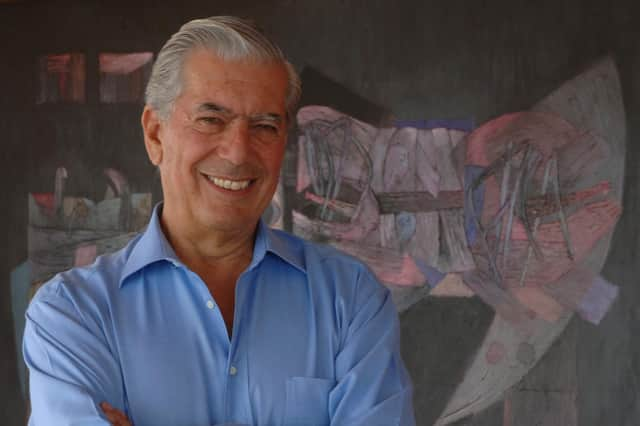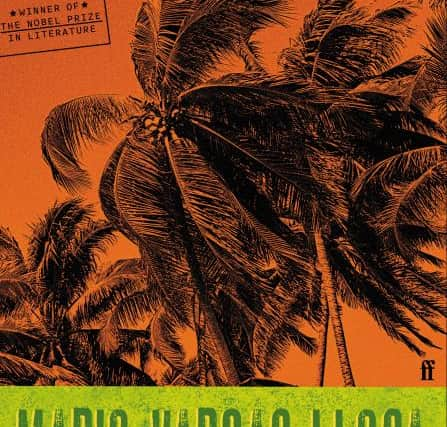Book review: Harsh Times, by Mario Vargas Llosa


Mario Vargus Llosa, winner of the Nobel and countless other prizes, has always been a political novelist, something barely escapable for any Latin American writer who looks reality in the face. I have met him only once, around 40 years ago, when the Scottish Arts Council awarded him its Neil Gunn fellowship and after lunch at, I think, the Café Royal in Edinburgh, I interviewed him for The Scotsman. He was, if I remember rightly, hopefully liberal then, even if understandably aware of the endemic brutality and corruption of politics in Central and South America, conditions for which he held the USA with its willingness to back any strong man who declared himself anti-communist in great part responsible.
How much of that liberal hope remains seems doubtful – very little, certainly, is reflected in this new novel, first published in Spanish two years ago and now released in an English translation by Adrian Nathan West. Near its end, one of the more honest and sympathetic characters, a doctor, asks another if he would like to know “the conclusion I’ve come to with all that’s happened to me, with all that’s happened in this country? That a human being is something contemptible indeed. It seems that deep down a monster lurks in each of us, as if it were just waiting for the right moment to emerge and wreak chaos.”
Advertisement
Hide AdSuch monsters emerge in this novel to wreak such havoc. The setting is mostly in Guatemala, where 70 years ago, at the instigation of the United Fruit Company and an American master of public relations, the CIA was persuaded that a democratic president determined to introduce land reform (and tax the UFC) was in fact a Soviet Trojan horse, even though he protested that he believed in capitalism, not communism, and that his model was the USA, not the USSR. So the CIA financed and organized a coup and “since then”, as that doctor says, ”we’re back to the same thing we’ve always had, one dictatorship after another.”


This is a political novel, also, I suppose, now a historical one. It tells the story of that coup and of the years of bloodshed and dictatorships that followed; historical because Vargas Llosa, writing about the coup in Guatemala, is, like Tolstoy in War and Peace, writing about events 70 years – man’s biblical lifespan – ago. It is steeped, no, drenched, in the Cold War which “imposed an amenable fiction atop reality.”
This richly peopled novel is also a violent political thriller. It is full of action and is, for two reasons, demanding for the reader. First, Vargas Llosa sometimes describes the same incident twice, the second time from a different point of view, when we already know what has happened. This can be confusing. Second, there is a huge number of characters, and I would have found it easier to remember who is who if the publishers had supplied a cast list. Scrupulous readers might be advised to do this for themselves. One character who plays an important role is first introduced as “the Dominican.” Forgetting the Dominican Republic (which actually plays a big part in the tragedy of Guatemala), I mistakenly took him at first for a member of the Dominican Order of Friars. Well, the Dominicans did some horrible things in the time of the Inquisition, but none as horrible as some of what this character does – though, one should add, Vargas Llosa treats him so truthfully that one may come to have a certain sympathy for him.
Setting such reservations aside, this is a splendidly rich and absorbing novel. It tells remarkable stories and it is, unlike much that may be classed as historical fiction, politically serious. There are sharp portraits, not least of an American ambassador who peddled unreality with missionary zeal. As in the work of some of the author’s masters – notably Conrad and Thomas Mann – the horrors described are relieved, and their reading made tolerable, by a tone of voice rich in irony.
Harsh Times, by Mario Vargas Llosa, Faber & Faber, 288pp, £20
A message from the Editor:
Thank you for reading this article. We're more reliant on your support than ever as the shift in consumer habits brought about by coronavirus impacts our advertisers.
If you haven't already, please consider supporting our trusted, fact-checked journalism by taking out a digital subscription at https://www.scotsman.com/subscriptions